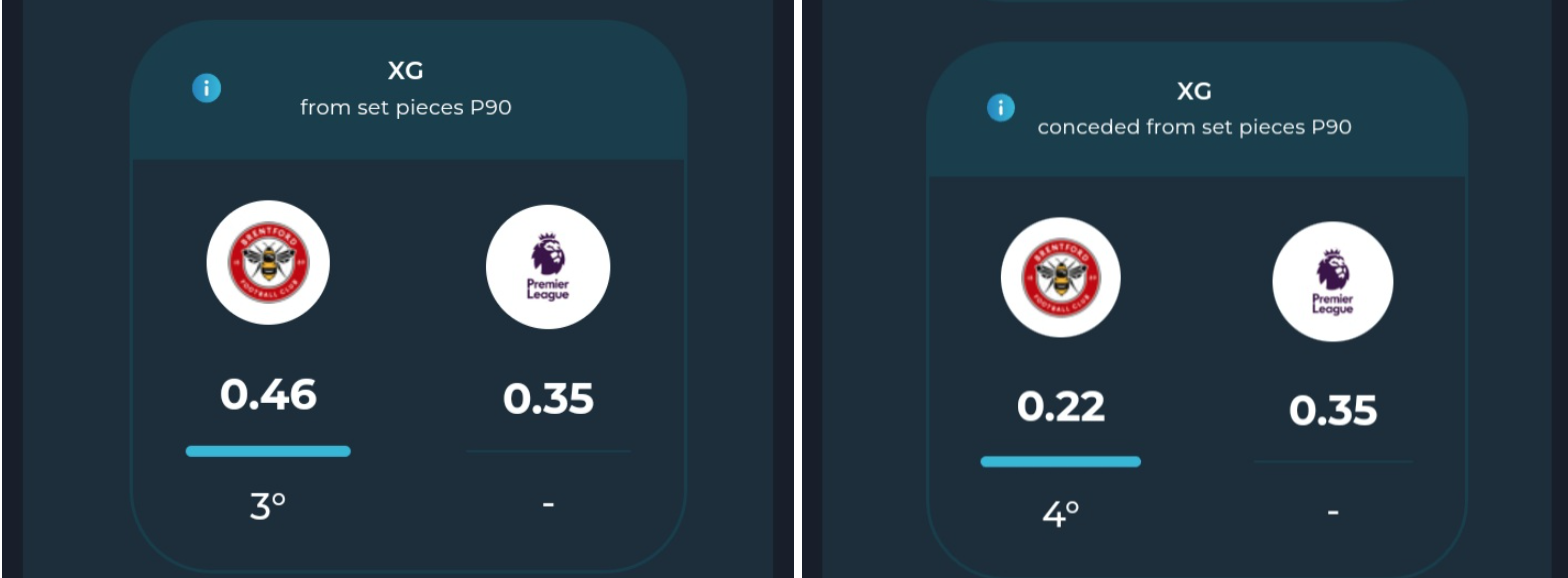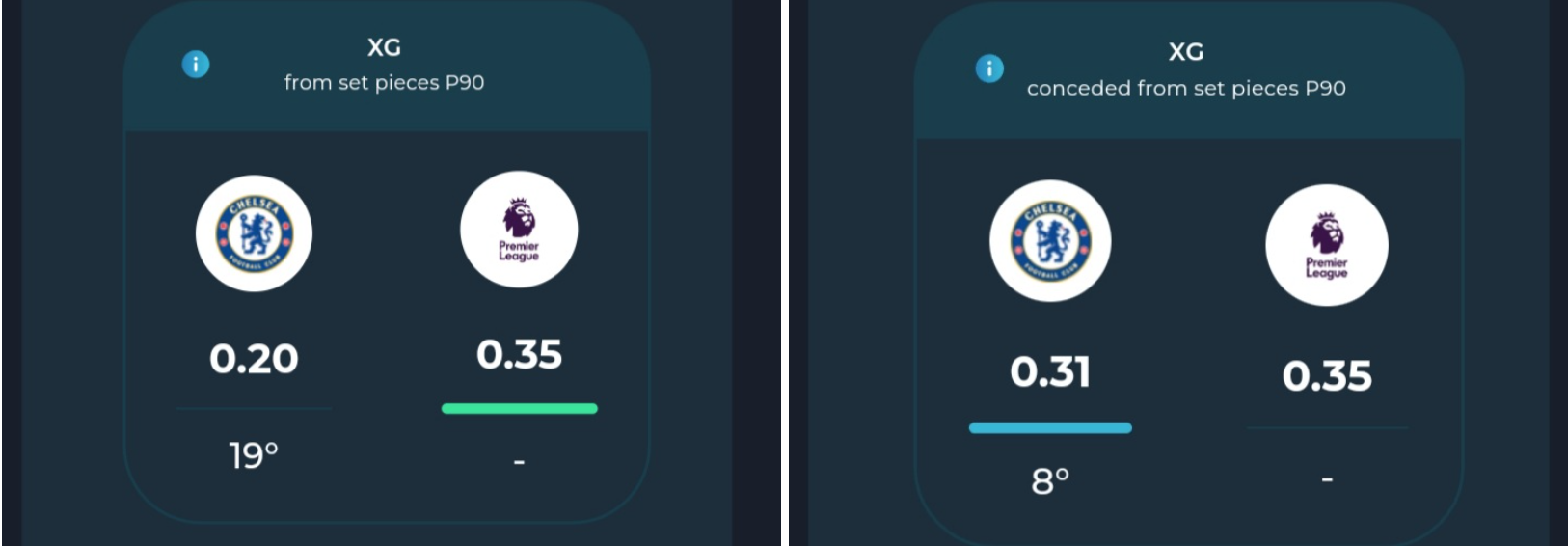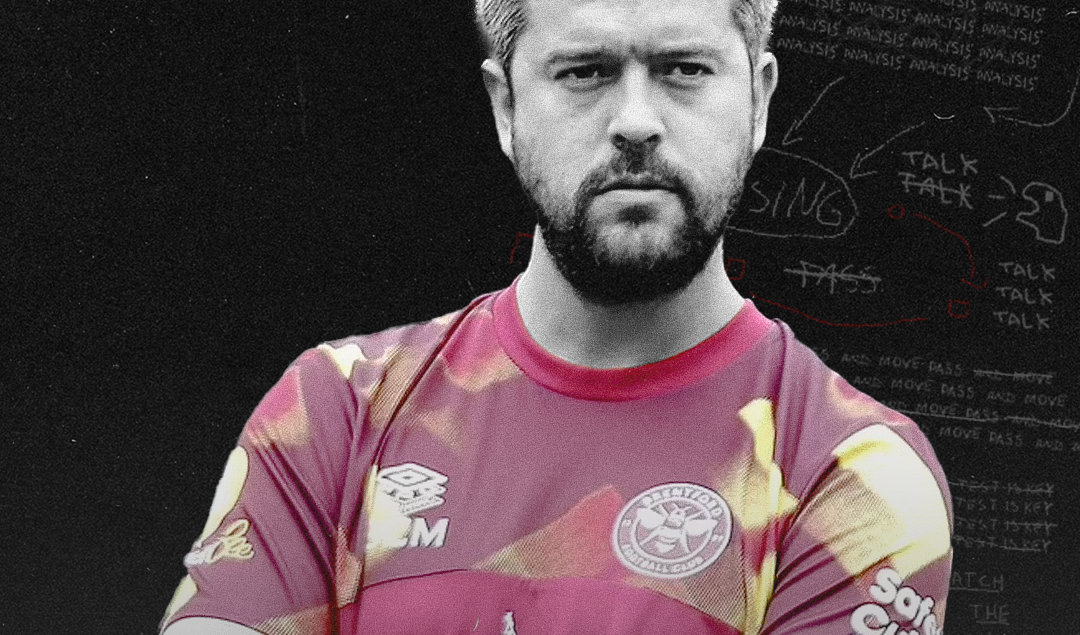Bernardo Cueva: Chelsea’s New Set-Piece Coach
The summer 2024 transfer window doesn’t open for another three months, and yet, Chelsea have already completing their first signing of the window: Brentford set-piece coach Bernardo Cueva.
Who is Bernando Cueva?
Born in 1987, Cueva played street football as a child but did not pursue a professional playing career; instead, he got his start as an analyst for Mexican side Chivas, working alongside manager Matías Almeyda as they won the 2017 Clausura league title and the 2017 Clausura Copa MX as well as the 2018 CONCACAF Champions League, which sealed their participation in the FIFA Club World Cup.
After three years at Chivas, he made the trip across the Atlantic and joined Brentford as an analyst in 2020. 2021 would see Brentford earn promotion to the top-flight for the first time in 75 years, with Cueva becoming the first Mexican to be part of the coaching staff of a Premier League side, and it also saw him appointed as the set-piece coach of the Norway national team, only working with Norway during international breaks. Moreover, he also works as one of the advisors for Mexico manager Jaime Lozano.
“We’re not expecting to be football experts, but we are going to put those people in place,” Todd Boehly on his arrival at Chelsea.
18 months since Boehly’s takeover of the club, @Kadmiel_09 evaluates the trajectory of Chelsea’s off-the-pitch ambitions:https://t.co/3Rrgh1Xs2V pic.twitter.com/fvDTe4XDp3
— Breaking The Lines (@BTLvid) March 15, 2024
Today, however, Cueva is approaching a new adventure at Stamford Bridge. Chelsea had pinpointed Cueva as their leading candidate for a position that had remained vacant since Anthony Barry’s departure for Bayern Munich in April 2023. The 36-year-old analyst will swap one West London club for another and make the move from Brentford to Chelsea after the completion of the 2023/24 season.
Cueva is yet another Brentford technical analyst to be poached by another team after Nicolas Jover and Jack Wilson (Manchester City), Andreas Georgson (Arsenal) and Gianni Vio (Italy and Tottenham Hotspur), and he looks set to earn the Bees a healthy profit with Chelsea £750,000 in compensation.
What is a Set-Piece Coach?
A set-piece coach concentrates on player development by designing drills to facilitate learning new routines, refining ball delivery techniques, and instructing on spatial awareness within the box. A set-piece coach also plays a pivotal role in a team strategy:
- Set-piece coaches help in strategizing the team’s tactics as well as optimizing scoring opportunities from set-piece situations such as corners free kicks, and throw-ins.
- Their responsibilities extend beyond merely teaching players routines and techniques; they meticulously analyze opponents’ weaknesses and devise innovative set-piece strategies to exploit them effectively.
- Set-piece coaches collaborate closely with the manager and the rest of the coaching staff to integrate set-piece plays seamlessly into the overall game plan.
- They also work individually with players to enhance their technical proficiency in delivering the ball and positioning themselves for optimal scoring chances.
- Set-piece coaches continuously evaluate and refine set-piece strategies based on scouting reports, match analysis, and evolving tactical trends in the game.
- Their attention to detail and strategic acumen are instrumental in maximizing a team’s scoring potential and gaining a competitive edge on the field.
Most Premier League starts for Chelsea this season:
6. Enzo Fernandez / Raheem Sterling / Moises Caicedo (20)
3. Thiago Silva (22)
2. Axel Disasi (23)
1. Conor Gallagher (24)@free__flowing on Gallagher’s ascent — and his uncertain future at Chelsea: https://t.co/u0N6XoCtr3 pic.twitter.com/dDiURR5yw7
— Breaking The Lines (@BTLvid) February 23, 2024
How can a Set-piece Coach be Beneficial to Chelsea?
Whilst Brentford have regressed into a relegation battle this season, they have generally been able to punch above their weight since earning promotion to the Premier League in 2021, and one of the biggest reasons behind their success is their impressive efficiency in set-piece positions. Chelsea, on the other hand, have struggled from dead ball scenarios since Frank Lampard’s first spell in charge. In his first season as Brentford’s set-piece coach, he has been able to achieve success both in terms of attacking dead balls as well as defending them.


- Probability of Scoring: The xG value represents the probability, on a scale from 0 to 1, of a goal being scored from a particular set-piece situation. In this case, an xG of 0.46 suggests that there’s nearly a 46% chance of a goal being scored from a typical set-piece opportunity.
- Comparative Analysis: By comparing xG values across different matches, teams, or seasons, one can evaluate the relative strength of a team’s set-piece execution. For instance, if a team consistently achieves xG values above 0.46 for set-piece opportunities, it suggests they have a particularly potent set-piece strategy.
Brentford have an average xG of 0.46 from set-pieces, giving them roughly a 50% chance of scoring from every opportunity they create. On the other hand, Chelsea have an xG of just 0.20, indicating that they are less clinical in front of goal and/or that they create fewer high-quality scoring chances from set-pieces. It is clear to see that Chelsea hiring a set piece coach is beneficial to them in terms of:
Axel Disasi vs. Manchester City:
-16 clearances
-3 blocked shots
-4/4 aerial duels won
-2/6 long balls completed
-25/29 passes completed@JacksonMaynar17 takes a look at Chelsea’s French defender:https://t.co/Bty7Clodce pic.twitter.com/gXKUjnyDMP— Breaking The Lines (@BTLvid) February 17, 2024
- Increased Goal-Scoring Opportunities: A well-executed set piece can create high-quality scoring opportunities, often resulting in goals. By refining their set-piece routines, the team can increase their chances of converting set-piece situations into goals, thus raising their overall xG value.
- Diversification of Attack: Set pieces offer a different avenue for goal-scoring compared to open play. By investing in set-piece strategies, the team can diversify their attacking options, making them less predictable for opposing defenses and potentially increasing their overall offensive effectiveness.
- Exploitation of Height and Strength: Set-piece situations often involve aerial duels and physical battles in the penalty area. If the team has tall or physically imposing players, improving set-piece execution can allow them to capitalize on their strengths and create more goal-scoring opportunities from headers or rebounds
- Strategic Advantage: A team that excels in set pieces can gain a strategic advantage over opponents, especially in tightly contested matches where goals are hard to come by. By consistently threatening from set pieces, they can put pressure on the opposing defense and force them to commit resources to defending against set pieces, potentially opening up space for other attacking opportunities.
A tactical statistician who is not only responsible for designing set-piece plays, but giving instructions to his players, Cueva is the latest example of Chelsea’s recent venture into data-driven analysis. He looks set to have a multidimensional role at Chelsea that includes:
- Analyzing opponents’ tactical setups, as he was once an analyst for Chivas.
- Working with the manager on issues regarding tactical setups and setups used during corners.
- Cueva’s background in both analysis and tactical coaching positions him well to bridge the gap between data-driven insights and on-field implementation.
- With his experience in analyzing opponents’ tactical setups, Cueva could play a vital role in pre-match preparation, helping the team anticipate and counter the strategies of their adversaries.
- Cueva’s involvement in set-piece planning underscores the increasing importance of data-driven approaches in optimizing scoring opportunities, whether through corner kicks, free kicks, or other set-piece situations.
- As the use of data analytics becomes more prevalent in football, Cueva’s role at Chelsea could evolve to encompass a broader range of responsibilities, including player performance analysis, recruitment strategies, and even in-game decision-making support for the coaching staff.
By leveraging Cueva’s expertise and the broader trend toward data-driven decision-making in football, Chelsea could gain a competitive advantage both on and off the pitch.
By: @Kadmiel_09
Featured Image: @GabFoligno / Mark D Fuller/Focus Images Ltd
